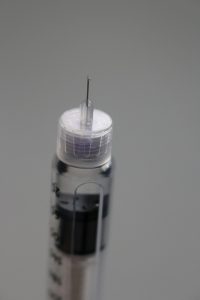
A needling problem
Avid readers of your soaraway Shoot Up will know that I’m currently on an 18-month long NHS waiting list for a pump. You’ll also recall I’m not too chuffed about this for obvious reasons. As, on the whole, I’m generally a pain in the arse I’ve been writing polite letters to everyone concerned about this sorry state of affairs.
I’ve generally had sympathetic replies from my MSP, the chief pump honcho at the hospital and the Chief Executive of the health board wrote to me the other day to say he’s asked someone to investigate and report to him about pump provisioning. It does seem that people are generally supportive, which is nice to know but – of course – not actually of any practical help to diabetics.
Certainly in my area the main sticking point appears to be the lack of funding – not, as you might expect, for the pumps and supplies themselves but for the training required for new pump users. I do agree that pumps are slightly more complicated than administering MDI, as there seems to be a greater possibility of complete cock-up with a pump compared to MDI. Though, as we all know, it’s very easy to utterly mess up with MDI – I do it quite often!
My health board undoubtedly has some great DSNs and the training I received when I was first diagnosed was relatively brief but was of a very high standard. But, unfortunately, there just doesn’t seem to be enough of them to go around. Currently their policy is to train about 5 or 6 new pump users every two months. This just isn’t enough throughput to increase Scotland’s woefully low number of pump users up to levels that are on a par with the rest of the country, let alone the rest of the western world.
If training genuinely is a bottleneck (and not just a slightly cunning feint to avoid funding new pumps without breaking the rules) then there seems to me to be a possible solution in the form of a public-private initiative in which everyone could win.
So here it is – what about the NHS partnering with the pump manufactures to provide training? The pump manufacturers will, obviously, know exactly how their pumps work, how they’re best used and will have a wealth of experience in supporting their customers in using their products. Everyone knows that diabetes is a nice earner for our favourite pharmaceutical companies and so the cost of training could be recouped on a cost-recovery basis or even as loss-leader set against the ongoing purchase of pumps and supplies.
Pump manufactures would surely have a reasonable amount of available resource to chuck at training (especially if it benefited them through long term and ongoing sales) and such an arrangement would free up NHS staff to do what they do best – supporting diabetics.
But might this lead to reduced patient choice? If, for example, Small Manufacturer A wasn’t able to supply training while Large Manufacturer B did, then might there be an inherent bias in the NHS to encourage diabetics to get a pump from Large Manufacturer B as they could then save on training costs?
I don’t think so, as any such arrangement would necessarily reduce the training overhead for the NHS allowing them to concentrate their resources on supporting patients who wanted, for whatever reason, to use a pump from Small Manufacturer A.
In this scenario everyone wins – patients get training and pumps quickly; the NHS’s training costs are reduced; the pump manufacturers get a loyal and going supply of lucrative diabetics.
But what about the issue of the bifurcation of training? After all, training from a pump company might not be at the same standard as NHS training? (Of course, it might be better). But given that standards of training and pump provision ;

9 thoughts on “Pump training”